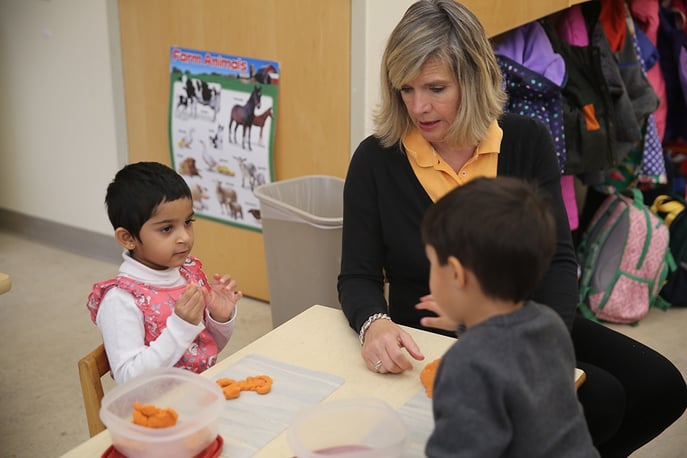Though the word "discipline" often has a negative connotation, it is just as necessary as love, food and sleep when it comes to raising a child. We want to enjoy every moment with our children, so sometimes it can be challenging to provide boundaries for them. Of course at the end of a long work day, when you and your child are both exhausted, it can be easy to be less consistent with discipline. However, those moments are just as important in establishing boundaries as what happens the rest of the day.
It's Important for Children to Feel Boundaries
It's natural for a child to test you; in fact, it's expected because that's how children learn. Testing is essential for children to learn about their surroundings and find out what is acceptable and what is not. Children need to feel boundaries because that provides them with security and safety, which are the foundation for emotional and cognitive learning. When children feel safe, they are able to direct their energy into engaging and exploring the world around them. If those boundaries aren't in place, that child's energy goes instead towards negative testing behaviors.

Children have an innate need to feel protected and the boundaries created by adequate discipline fulfill that need by providing security and safety. When testing escalates, this is a message to the adult – the child is basically begging you to stop him or her. It's important for us to respond, "I'm going to stop you because I love you." In classrooms, there are all kinds of children who frequently test their boundaries. In these instances, they aren't able to engage with class materials or build relationships with their peers, because instead they're in the mode of constantly asking "okay, what else can I do, until someone stops me?"
Given the importance of discipline, some ways of disciplining children are more effective than others. Here are some things to keep in mind:
1. Redirect children in positive ways. When a parent says "don't run," a child hears, "run," focusing only on the last part of the sentence. Instead, focus on the desirable action. For example, "Walking feet."
2. Use the word "no" mostly for situations of safety, such as when a child may be putting himself or herself in danger.
3. Boundaries change as children age. What is appropriate for a two-year-old may not be appropriate for an older child. At Whitby, we ensure that our expectations increase as children become more capable. This gives children a vote of confidence that they can rise to the occasion.
4. Once children are older, it's important to teach them about consequences for their behaviors, including their impact on others' feelings.
5. Throughout their early years, it's important for children to develop self control. When children are young and don't have language yet, they are more likely to react physically. As they get older, we support children in acquiring the ability to respond to situations with language and problem-solving skills.
If you're interested in exploring more topics surrounding early childhood, Whitby School offers a series of parenting workshops. Parents as Partners is a special mini-series of workshops related to parenting and education, an extension of our partnership with families.
We recently recorded our workshop on raising confident children, led by members of Whitby's early childhood faculty. Click the button below to access the full presentation:


